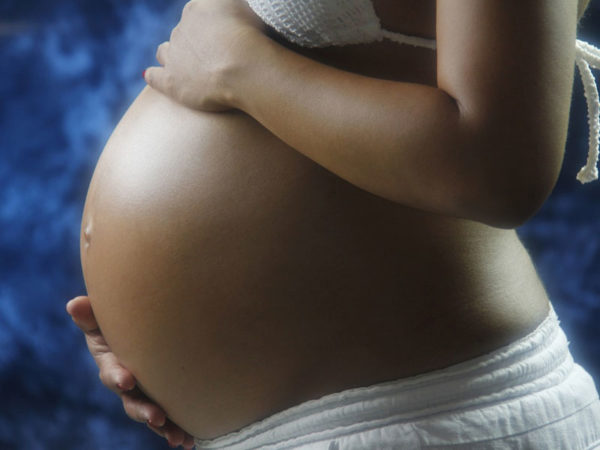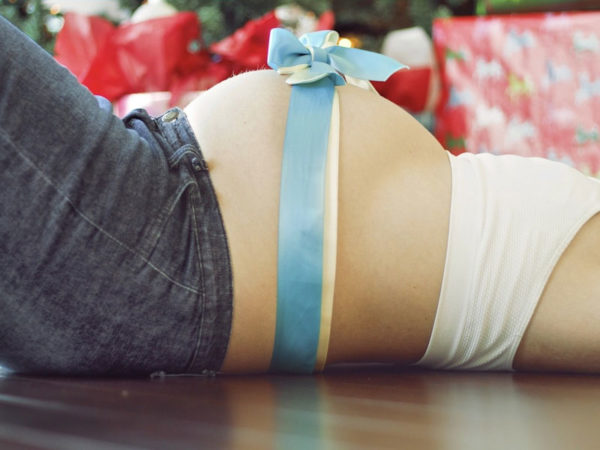How Beneficial Is Physiotherapy For Women During Pregnancy?
Most women experience aches and pains of some description during pregnancy – this is perfectly normal, as the ligaments in the body soften and stretch in preparation for labour. In some cases, however, these symptoms may become more severe and impact upon a woman’s quality of life, transforming the joy of pregnancy into a painful experience.

How Can Physiotherapy Help During Pregnancy?
Physiotherapy can be used to treat a range of uncomfortable symptoms during and post-pregnancy, including but not limited to the following:
- Pregnancy related aches and pains
- Back Pain
- Pelvic Girdle Pain (PGP)
- Urinary Incontinence
- Diastasis Recti (the stretching and separating of abdominal muscles)
- Post-natal pains & Prolapse
Pregnancy Related Aches and Pains
Body aches and extreme tiredness are all common during pregnancy, and are usually the result of the changes and adaptations to the body. Common aches and pains may include non-specific back pain, leg cramps and aches, headaches and abdominal pain.
Physiotherapy for Pregnancy Related Aches and Pains
Appropriate physiotherapy during pregnancy can significantly improve both physical and mental wellbeing – helping expectant mothers to relax and enjoy their pregnancy and assisting those post-delivery to regain their strength and flexibility.
Back Pain
Back pain, more specifically lower back pain, is extremely common during pregnancy. The spinal column has to support the weight of the rapidly growing baby, which can lead to a number of aches and pains.
Physiotherapy for Pregnancy Related Back Pain
There are a number of gentle exercises and stretches which can help to strengthen and ease the strain on the soft tissues of the back, helping to alleviate painful symptoms as well as supporting the growing baby.
Pelvic Girdle Pain (PGP)
PGP refers to a relatively common pregnancy-related condition characterised by an uncomfortable set of symptoms which cause stiffness or excessive movement in the pelvic joints, this may vary from mild to severe pain. Although PGP is not harmful to the baby, it can however be extremely painful and limit daily activity.
PGP is usually the result of uneven movement of the joints in the pelvic region. This may be caused by the release of a particular hormone during pregnancy which softens the ligaments, leading to the pelvic girdle becoming less stable and subsequently painful.
Pain may be felt:
- In the hip region
- Over and around the pubic bone
- In the thighs
- Around the perineum
Symptoms may worsen when walking up or downstairs, on steep hills or when turning over in bed.
Physiotherapy for PGP
Physiotherapy is a highly effective form of treatment for PGP, as it focuses on a variety of rehabilitative exercises and specific stretches used to help relieve adverse symptoms and to strengthen pelvic floor muscles. Therapy typically involves hands-on manipulation as well as other stretches.
Urinary Incontinence
This is a common issue experienced both during pregnancy and following childbirth and is typically a result of weak pelvic floor muscles. These muscles support the uterus as well as helping to control the bladder and bowel. If the pelvic floor muscles are weakened, it can make it more difficult to control bladder movements and in some cases bowel movements. Sudden movements such as coughing or sneezing may cause spots of urine to leak.
Many women experience urinary incontinence following childbirth, the extent of the incontinence may depend on any incontinence experienced when pregnant and what happened during the labour.
Physiotherapy for Urinary Incontinence
Physiotherapy is one of the best ways to regain bladder control. Specific pelvic floor exercises guided by a trained physiotherapist can help to strengthen and rehabilitate weakened muscles.
Diastasis Recti
During pregnancy the abdominal muscles stretch to allow space for the growth of the baby, Diastasis Recti occurs when these abdominal muscles over-stretch during pregnancy and separate down the midline.
Physiotherapy for Diastasis Recti
Physiotherapy, including specific strengthening exercises, guided by an experienced physiotherapist can help to repair and correct diastasis recti. It is important to avoid exercises such as crunches initially as they can exacerbate the problem.
Postnatal Pains & Prolapse
Many women experience pain and a range of physical changes following delivery as a number of different muscles and ligaments may have been overstretched. Symptoms can vary depending on the individual’s pregnancy and their labour. Lower back pain and weak pelvic floor muscles are both common complaints, in some severe cases, weak pelvic floor muscles may result in a pelvic organ prolapse –this is when one, or sometimes more of the pelvic organs slip out of position and bulge into the vagina.
Physiotherapy for Postnatal Pains & Prolapse
Guided exercises, hands on manipulation, specific strengthening and stretching exercises can all help improve painful symptoms and strengthen the all-important pelvic floor muscles, allowing the mother to enjoy their time with their new baby as well as a more active lifestyle.
Common Concerns
What Happens During the First Session?
The first session consists of an in-depth consultation to discuss the medical history and symptoms. This is followed by a physical assessment to help define any issues and discuss possible physiotherapy solutions.
Is Physiotherapy Safe During Pregnancy?
Appropriate physiotherapy is perfectly safe and can be applied at all stages of pregnancy. Treatments may vary or be different to the type of physiotherapy applied to non-pregnant ladies, however, all of this will be discussed during the consultation.
Embarrassment
Many women avoid seeking treatment for intimate issues due to feelings of embarrassment; our experts however are very discreet and have considerable experience dealing with such topics and providing reassurance, as well as practical solutions.

Related Services
As well as physiotherapy, there are various other services and classes which can be highly beneficial to both expectant and post-partum mothers.
Pregnancy Massage
A highly effective way of providing pain relief in the muscles and the joints, pregnancy massage can help reduce swelling and tension, as well as helping to combat pregnancy-related insomnia and stimulate the release of endorphins.
Antenatal Pilates
Antenatal classes tailored to suit the individual stage of pregnancy which focuses on keeping the mother and baby strong – this is an excellent way of releasing tension throughout the pregnancy and strengthening key areas within the body.
How to Make an Appointment
For advice or more information, feel free to contact us by telephone, email, or via our online booking form.
